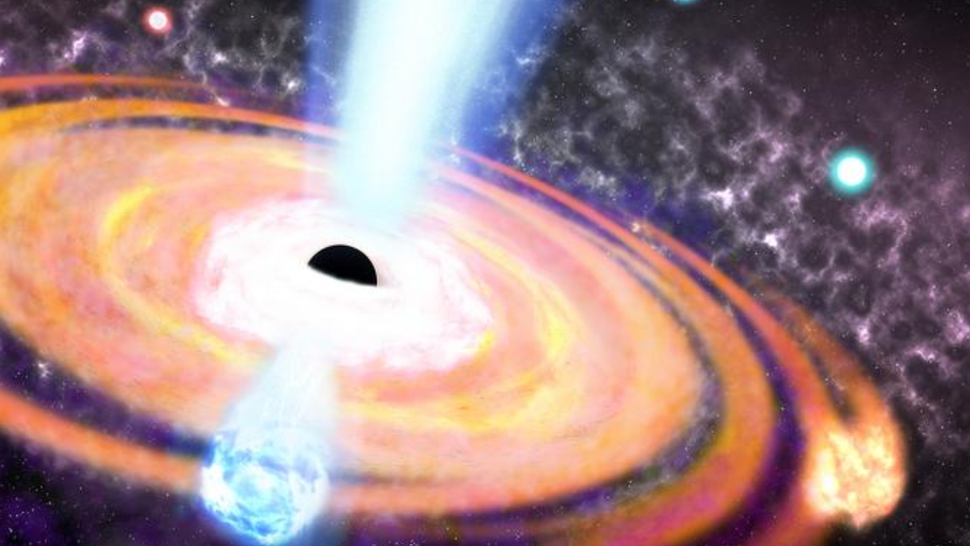Did monster black holes or galaxies come first? The James Webb Space Telescope may have a surprise answer
By Robert Lea published about 17 hours ago
"We know these monster black holes exist at the center of galaxies near our Milky Way, but the big surprise now is that they were present at the beginning of the universe."

An illustration shows the magnetic fields of an early supermassive black hole driving star formation. (Image credit: Roberto Molar Candanosa/Johns Hopkins University)
"What came first, the galaxy or its monster black hole?"
Technically, it's an even more ancient riddle than the one about the chicken or the egg — though we've only relatively recently become aware of it. And, according to new research, scientists may finally have an answer.
Supermassive black holes that existed close to the dawn of time have long been believed to have shaped the galaxies around them, accelerating the galaxies' rates of star formation and thereby influencing the evolution of the entire universe. But now, a reanalysis of data from the James Webb Space Telescope (JWST) indicates that these black holes could have been present during the first 50 million years of our 13.8 billion-year-old universe, driving star formation at such an early age.
"We know these monster black holes exist at the center of galaxies near our Milky Way, but the big surprise now is that they were present at the beginning of the universe as well and were almost like building blocks or seeds for early galaxies," Joseph Silk, team leader and a professor at Johns Hopkins University, said in a statement. "They really boosted everything, like gigantic amplifiers of star formation, which is a whole turnaround of what we thought possible before — so much so that this could completely shake up our understanding of how galaxies form."
Silk points to the fact that distant and early galaxies the JWST has been looking at, since it started sending data to Earth in the summer of 2022, are brighter than expected.
More:
https://www.space.com/james-webb-space-telescope-black-holes-galaxies-first
